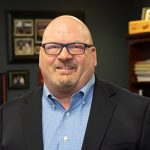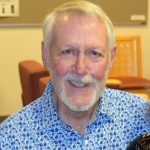For the greater good
Donors step up for principles of diversity, equity and inclusion
More than 12% of money raised during the Promising Pathways Campaign—about $4 million—came from donors who identify as members of non-dominant communities or who want their gifts to support members of historically marginalized communities.
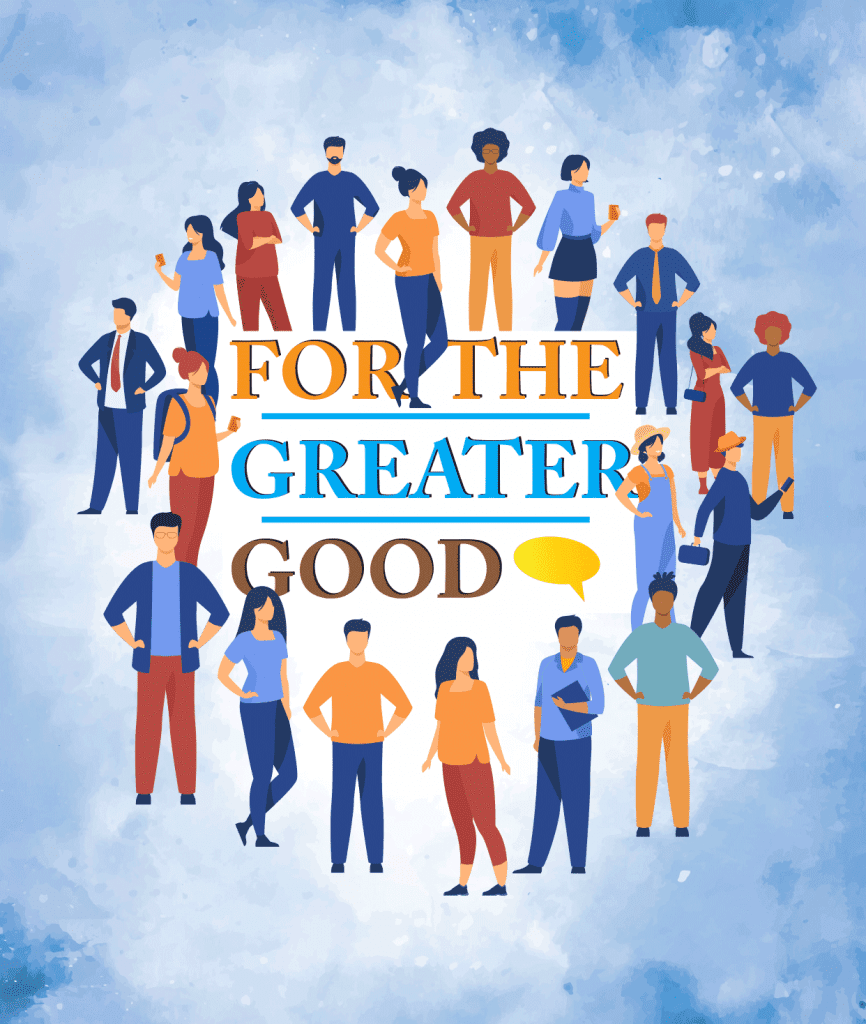 It’s evidence of Clark College Foundation’s ongoing efforts to get more people involved in supporting the college—and to make sure every student has what they need to succeed.
It’s evidence of Clark College Foundation’s ongoing efforts to get more people involved in supporting the college—and to make sure every student has what they need to succeed.
“The world is changing and so we need to do a better job of reaching out to people from non-dominant communities who haven’t necessarily been involved in philanthropy in higher education,” said Joel B. Munson, chief advancement officer of Clark College Foundation.
The Promising Pathways Campaign coincided with big cultural shifts. Days before the campaign launched in July 2015, the U.S. Supreme Court decided a landmark case that declared same sex marriage bans unconstitutional. In 2017, the #MeToo movement went viral. In the summer of 2020, millions of Americans participated in Black Lives Matter protests.
In 2021, Clark College Foundation pledged $25,000 to create the President’s Dissolving Disparities Fund. The fund supports a priority of Clark College President Dr. Karin Edwards, who took the helm in June 2020 and remains committed to eliminating disparities among students. Nationally and at Clark, students of color are less likely to remain enrolled and graduate than white students.
Thirty-three percent of Clark College students are people of color and about 70 percent are first generation college students, according to Clark’s demographic data for the 2021-22 academic year. About half of Clark students identify as members of historically non-dominant communities including lesbian, gay, bisexual, transgender and queer (LGBTQ).
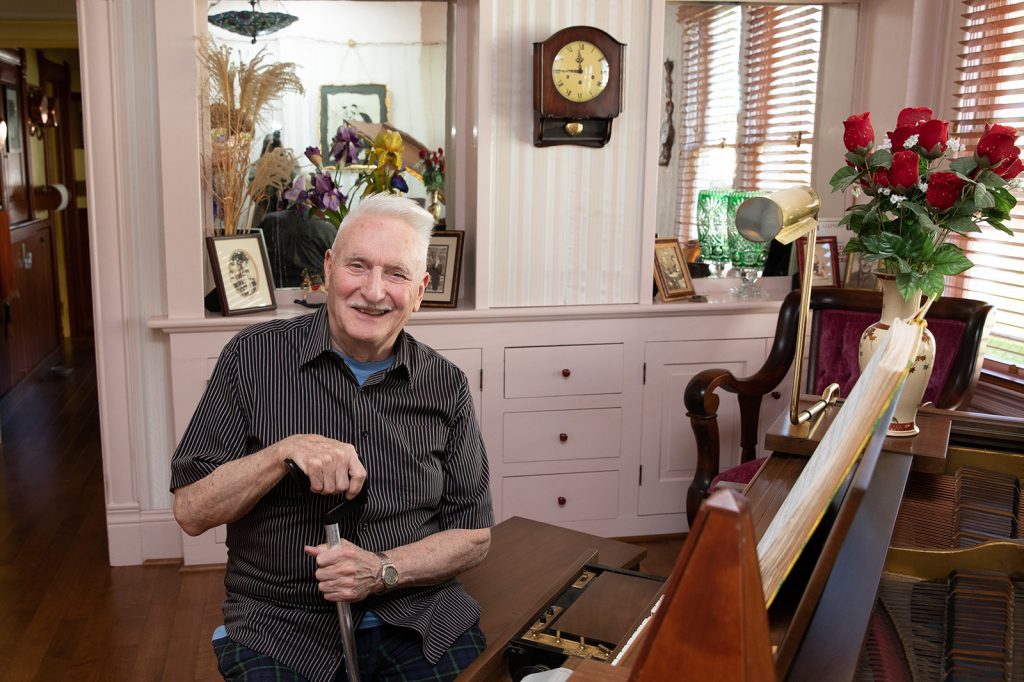
George Oberg Jr. ‘58, a 2020 Outstanding Alumni Award recipient and generous philanthropic partner, is a pioneer who helped bring about significant social and cultural change to the Pacific Northwest.
If that seems more diverse than Southwest Washington at large, well, Clark College Trustee Paul Speer advises waiting.
“The college actually represents what the community will look like in 10 years,” he said.
Speer, who donated to the President’s Dissolving Disparities Fund, believes that a community college doesn’t just need to represent its community, it needs to lead its community. Clark is training the workforce of the future. Meeting the needs of a diverse student body is critical to remaining relevant, he believes.
“And I think there’s a moral imperative,” Speer said. “You can’t have a healthy community without everyone in that community being healthy.”
Help one, help all
Edwards has full discretion over how to spend the money in the new fund. That’s part of what drew Eric Merrill, a member of Clark College Foundation’s Board of Directors, and his wife, Jeanne Caswell, to contribute to the fund. They wanted to support the new president and they liked how the fund allowed Edwards to target money to certain areas as needs and opportunities arose, especially during the pandemic.
When Merrill retired from his career as a corporate executive five years ago, he and Caswell made a conscious decision to focus their charitable giving and volunteering on education, including Clark College Foundation.
“We believe that education is what builds communities,” Merrill said. “Community colleges are a great way to assist people to further their education and their ability to get ahead.”
As a community college, Clark is uniquely suited to address inequities in Southwest Washington by providing higher education that is affordable and accessible. And, because Clark has an early childhood education program and early learning center, Merrill pointed out, by supporting Clark, he and Caswell are supporting learners of all ages.
“It’s a way to level the playing field,” Merrill said.
Another way the playing field is leveled is through the Community Foundation for Southwest Washington (CFSWW). The philanthropic organization manages donor advised funds and awards grants to local programs. Esra Khalil, program officer, manages the nonprofit’s grant programs. Clark receives funds from CFSWW to support its diversity, equity and inclusion goals.
“At its heart, the Community Foundation for Southwest Washington’s reason for being is to support a thriving community,” Khalil said. “The surest pathway to that is really looking at the inequities in our community and directing resources to those who have been historically underserved.”
One of the primary goals is to disrupt cycles of generational poverty by investing in education, she said, which makes Clark College a natural partner in the region.
“We recognize the opportunity that Clark College offers as an accessible entry point to an education and career pathways,” Khalil said. “Education is one of the closest levers you can get to supporting prosperity.”
Efforts to help historically marginalized communities end up helping everyone. A 2014 study at Odessa College, a two-year college in Texas, for example, found that a comprehensive strategy aimed at reducing dropouts among high-risk students improved retention and graduation rates among all demographics. Even groups with high retention rates to start saw their rates go up further.
Clark recently transitioned to a guided pathways model of education that emphasizes one-on-one advising and easy to access pricing and loan information to help students plan their educational paths and increase the likelihood that they’ll achieve their goals. The Promising Pathways Campaign raised more than $1 million to support this transformation.
Last year, Clark College Foundation launched a new program called KnowMe! to reach out to Clark’s vast population of alumni with a simple goal:
“We’re asking people to identify the communities they come from, tell us who they are and how we can better involve them,” said Munson.
The foundation has increased the diversity of its own staff and board of directors. But, Munson said, there is still room for improvement. KnowMe! is an opportunity to connect with and learn from alumni who already have ties to Clark but who don’t necessarily fit the traditional mold of a higher education philanthropist.
“We want to get more people involved with the college and ultimately help support our students financially,” Munson said.
Means something
Donors’ individual reasons for giving to the Promising Pathways Campaign are as diverse as the donors themselves. For Christie Soto, for example, helping to establish the Sharon M. Keilbarth Memorial Scholarship for lesbian, gay, bisexual, transgender and queer (LGBTQ) students and their allies was a way to honor her late sister.
Soto, who identifies as half Latina and half Native American, was the youngest of seven children. Keilbarth, who died in 2012 at the age of 53, was the oldest.
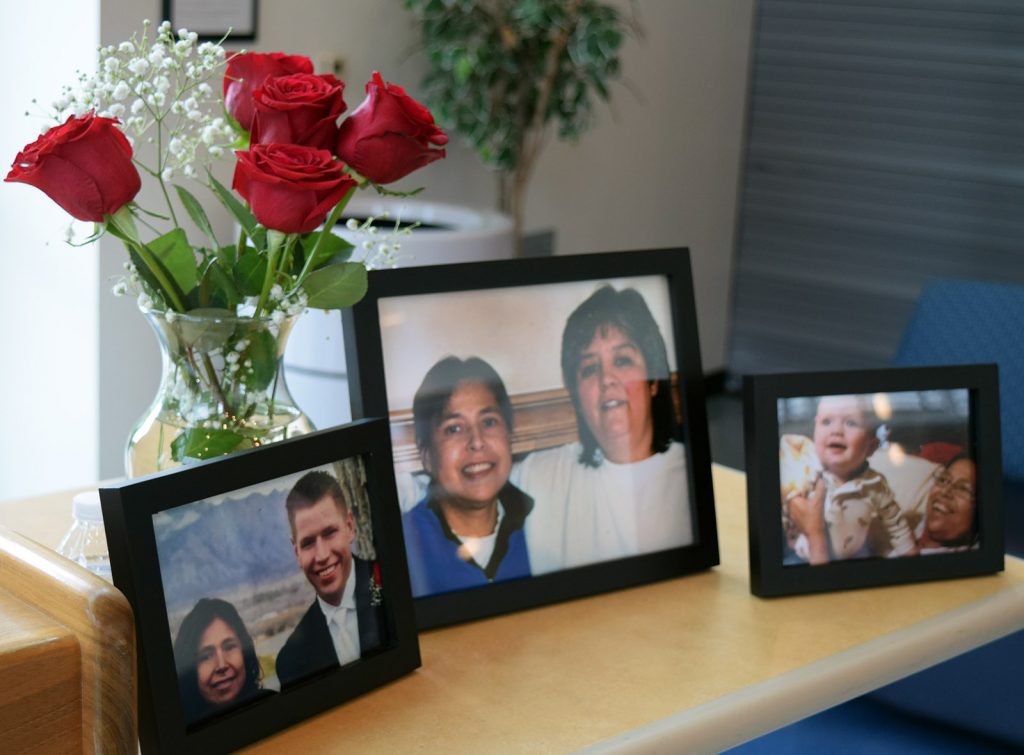
Christie Soto started the Sharon M. Keilbarth Memorial Scholarship in 2018 in memory of her sister to advance inclusion and opportunity related to the LGBTQ community.
When Soto came out as a lesbian, she told her oldest sister first. Keilbarth took their mother and other sisters to breakfast the next day to tell them. Keilbarth was also a lesbian but as a child of the 1960s, she struggled to accept her true identify. When she finally came out, Soto said, the whole family benefitted from Keilbarth’s example of living truthfully.
Soto was the first person in her family to go to college. When she graduated from high school, her mother hung her photo and diploma on the wall, and it encouraged the rest of their family.
“People think it’s easy to graduate high school, but it depends on where you come from,” Soto said. “If you hit a certain age and you have to start working to help, it’s not that easy.”
Keilbarth never went to college, but she encouraged her youngest sister to stay in school and even helped pay for her education. Soto tried to attend college several times before she discovered an automotive program at a community college near her home in New Mexico. Cars were her passion. Soto earned a bachelor’s in automotive industry management and said she couldn’t have done it without Keilbarth’s support.
“What education did for me, along with having the strength of my sisters and my family, is it helped me figure out who I am,” Soto said. “Education didn’t make me who I am, I’m still me, but it opened so many more doors for me.”
After she moved to Vancouver, Wash., Soto chose to memorialize her sister by helping to fund a Clark scholarship in 2018.
“If I was going to be here and my kids were going to be here, then I wanted her scholarship to be here, too,” Soto said.
She wanted the scholarship to help a community to which she and her sister both belonged. Soto knows from experience that scraping together funds for a college education means looking at every possible box a person can check. Soto said she doesn’t like labels. But she can imagine what it would have felt like to read through a list of scholarships and see one focused on supporting someone like her.
“To think, ‘yes, I identify as this and I want to be part of this community,’” she said, “that means something.”
Lily Raff McCaulou is a journalist whose writing has appeared in The New York Times, The Atlantic, The Guardian and Rolling Stone. She lives in Bend, Ore. Visit her online at www.lilyrm.com.


